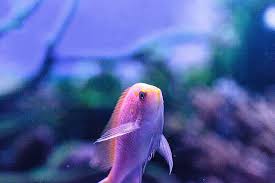Dragons and Their Connection with the Chinese Zodiac
The Chinese Zodiac, or Shengxiao, is an ancient system of astrology that assigns each year to one of twelve animals, which rotate in a cycle. These animals, which include the Rat, Ox, Tiger, Rabbit, Dragon, Snake, Horse, Goat, Monkey, Rooster, Dog, and Pig, are associated with specific traits and characteristics that influence the personalities and destinies of individuals born under their sign. Among these animals, the Dragon stands out as the most revered and powerful figure in Chinese astrology. It is considered the king of the zodiac, symbolizing strength, vitality, and fortune.
The Dragon is a central figure not only in the Chinese Zodiac but also in Chinese culture, mythology, and history. Its importance extends far beyond the realms of astrology, reaching into every corner of Chinese life—from imperial iconography to the spiritual and philosophical realms. The connection between the Dragon and the Chinese Zodiac is deeply rooted in history, and understanding its significance provides a glimpse into Chinese culture, belief systems, and values.
This article explores the Dragon’s place within the Chinese Zodiac, examining its characteristics, influence, and cultural importance. We will also explore the broader cultural context of the Dragon in Chinese society, looking at its connection to the philosophy of yin and yang, its representation in art and folklore, and the spiritual qualities it embodies. Furthermore, we will discuss the role the Dragon plays in the lives of those born under its sign, as well as the general characteristics of people born in the Year of the Dragon.
The Dragon in the Chinese Zodiac: An Overview
The Chinese Zodiac operates on a twelve-year cycle, with each year being associated with a specific animal. The cycle begins with the Rat, followed by the Ox, Tiger, and so on, with the Dragon occupying the fifth position in the cycle. Each animal sign is also paired with one of the five elements—Wood, Fire, Earth, Metal, and Water—which further affects the traits and fortunes of individuals born during that year.
People born in the Year of the Dragon are thought to possess characteristics associated with the Dragon’s symbolic nature. The Dragon is often seen as a symbol of power, vitality, courage, and determination. It represents the life force, or Qi, that flows through all living things and drives them toward growth and achievement. Those born under the Dragon are believed to embody these traits and are often considered charismatic, ambitious, and highly driven individuals.
The Dragon’s place in the Chinese Zodiac is unique because, unlike the other animals, it is not based on real, physical creatures that inhabit the world. Instead, the Dragon is a mythical and legendary creature, one that symbolizes forces beyond the ordinary. Its status as a powerful, mythical being distinguishes it from the other animal signs, which are based on more familiar creatures such as rats, tigers, and horses.
The Symbolism of the Dragon in Chinese Culture
In Chinese culture, the Dragon is one of the most significant symbols, representing a wide range of qualities, including strength, wisdom, and protection. The Dragon’s role extends beyond the Zodiac to become a national symbol of China itself. For centuries, the Dragon has been seen as the emperor’s totem, representing imperial power and authority. It is associated with the Emperor’s divine right to rule and is a symbol of prosperity, good fortune, and harmony.
The Dragon is a central figure in Chinese mythology and folklore. It is often depicted as a powerful, serpentine creature with the ability to control the elements, particularly water. According to Chinese legend, the Dragon is responsible for bringing rain to the land, ensuring a bountiful harvest and prosperity. As such, the Dragon is a symbol of fertility and abundance, and it plays a crucial role in the agricultural cycles of Chinese society.
In addition to its connection to the emperor and the agricultural realm, the Dragon is also associated with spirituality and the Daoist concept of balance. In Daoism, the Dragon represents the harmonious flow of Qi, or life energy, which is essential for maintaining health, vitality, and balance. The Dragon’s role in Chinese culture is multifaceted, symbolizing both the physical and spiritual dimensions of life.
Characteristics of People Born in the Year of the Dragon
People born under the Dragon sign are often described as strong, ambitious, and charismatic individuals. They are natural leaders, confident in their abilities, and are driven by a desire to succeed and achieve greatness. These individuals are often seen as creative, intelligent, and fearless, willing to take risks and face challenges head-on in order to reach their goals.
In terms of personality, Dragons are known for their fiery temper and passion. They are not afraid to stand up for what they believe in and are often outspoken and assertive. However, their bold nature can also lead to impatience and stubbornness at times. While they are highly driven and determined, Dragons can sometimes be prone to arrogance or overconfidence, believing that they can overcome any obstacle without assistance.
The Dragon’s ruling element is typically Fire, which adds intensity and dynamism to the personality. This makes individuals born in the Year of the Dragon energetic, enthusiastic, and full of life. Their presence is often magnetic, and they tend to attract attention wherever they go. However, this exuberance can sometimes come across as overwhelming or domineering, and Dragons must be mindful of their interactions with others to avoid alienating those around them.
At their best, Dragons are visionary leaders, capable of inspiring and motivating others to achieve great things. They are innovative and creative thinkers, always looking for new ways to improve and grow. However, their strong-willed nature can sometimes lead them to clash with others, particularly those who challenge their authority or question their ideas.
The Dragon and the Philosophy of Yin and Yang
In traditional Chinese philosophy, the concept of Yin and Yang is fundamental to understanding the natural world and the balance between opposites. Yin represents the passive, receptive, and feminine force, while Yang symbolizes the active, assertive, and masculine force. Together, these two forces create balance and harmony in the universe.
The Dragon, as a symbol of strength, vitality, and creativity, is typically associated with Yang energy. It embodies the active, assertive aspects of life and is often depicted as a powerful force that drives change and growth. However, the Dragon’s connection to Yin and Yang is not one-dimensional. The Dragon also represents the balance between these two forces, as it has the power to control both the elements of nature and the flow of life energy.
In the Chinese Zodiac, each of the twelve animals is associated with a particular balance of Yin and Yang, and the Dragon’s placement in the cycle reflects its role as a powerful and dynamic force. It is the embodiment of Yang energy, but it also represents the need for balance and harmony in all aspects of life.
The Dragon’s Role in Chinese Art and Folklore
The Dragon is a common motif in Chinese art and culture. It can be found in a wide variety of forms, from the intricate dragon patterns woven into silk fabrics to the majestic dragon sculptures adorning temples and palaces. The Dragon is often depicted as a long, serpentine creature with a flowing mane, sharp claws, and a fiery breath. It is typically shown in a dynamic, fluid pose, symbolizing movement and vitality.
In Chinese folklore, the Dragon is often seen as a guardian of treasures and sacred objects. Legends tell of dragons guarding hidden hoards of wealth, ancient scrolls, and magical artifacts. These stories reflect the Dragon’s role as a protector and symbol of prosperity, reinforcing its connection to wealth and good fortune.
The Dragon is also associated with various festivals and celebrations in Chinese culture. During the Chinese New Year, for example, dragon dances are a common feature of the festivities. These dances, performed by teams of dancers in elaborate dragon costumes, are believed to bring good luck and drive away evil spirits. The Dragon’s role in these celebrations reflects its status as a symbol of protection, prosperity, and renewal.
Conclusion
The Dragon is a central figure in the Chinese Zodiac and plays a significant role in Chinese culture and mythology. Its connection to the Zodiac represents strength, vitality, and fortune, while its broader cultural significance symbolizes the power and authority of the emperor, the harmony of nature, and the protection of treasures. People born under the Year of the Dragon are often seen as ambitious, strong-willed, and charismatic individuals, driven by a desire to succeed and achieve greatness.
As a symbol of prosperity, wisdom, and protection, the Dragon continues to hold a special place in Chinese society. Its connection to the Chinese Zodiac is just one aspect of its deep cultural significance, which spans millennia and touches on the core values and beliefs of Chinese civilization. Whether in the realm of astrology, art, or mythology, the Dragon remains an enduring symbol of strength, resilience, and vitality in Chinese culture.


